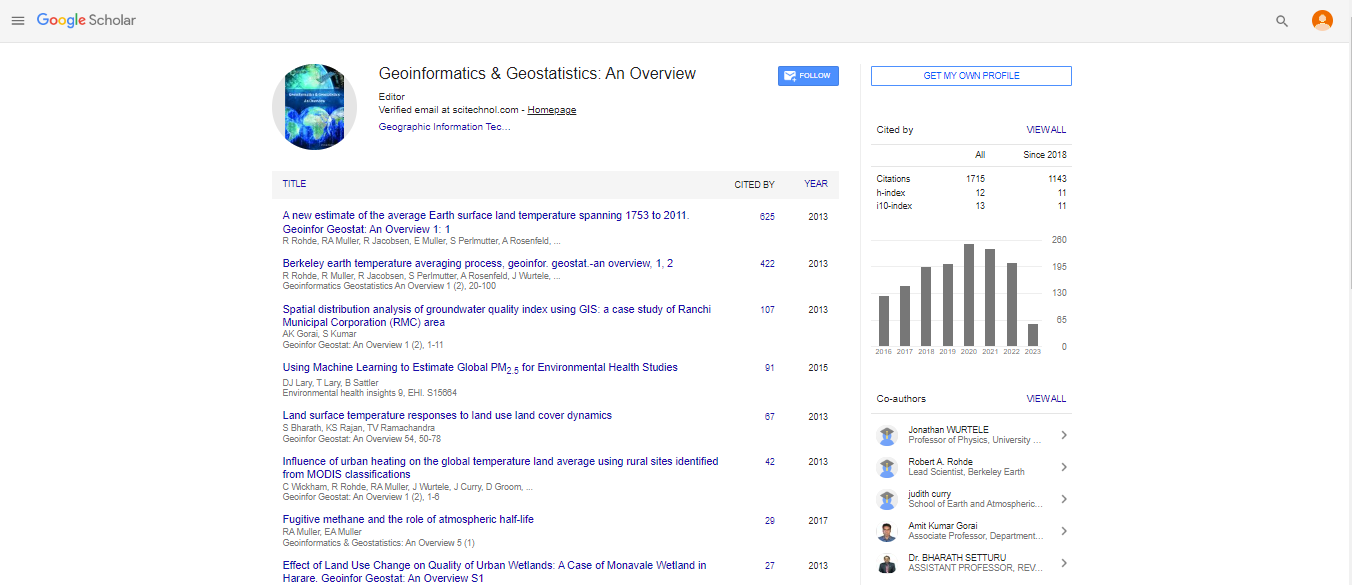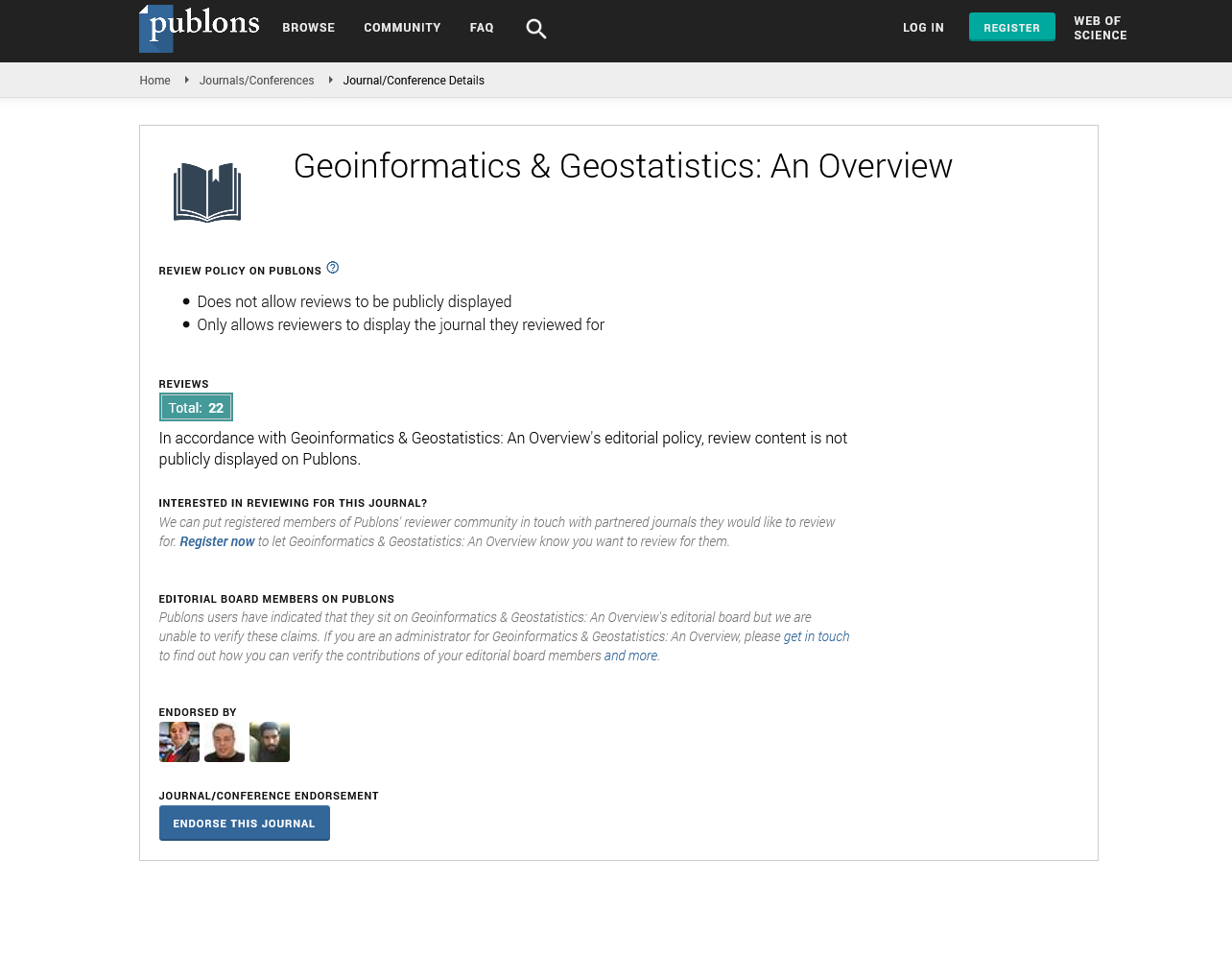Research Article, Geoinfor Geostat An Overview Vol: 6 Issue: 4
Extraction and Analysis of Different Terrain Derivatives from Point Cloud Airborne LiDAR Measurements of Reduced Data Volumes
Fahmy FF Asal*
Department, Faculty of Engineering, Menoufia University, Shebin El-Kom, Egypt
*Corresponding Author : Fahmy FF Asal
Civil Engineering Department, Faculty of Engineering, Menoufia University, Shebin El-Kom, Egypt
Tel: 201003300435
E-mail: fahmy_asal@hotmail.com
Received: September 19, 2018 Accepted: October 23, 2018 Published: October 30, 2018
Citation: Asal FF (2018) Extraction and Analysis of Different Terrain Derivatives from Point Cloud Airborne LiDAR Measurements of Reduced Data Volumes. Geoinfor Geostat: An Overview 6:4. doi: 10.4172/2327-4581.1000190
Abstract
Topographic parameters such as slope, aspect, profile curvature, contour curvature and drainage network are usually known as terrain derivatives that enjoy a wide range of engineering and environmental applications. Different Surveying Engineering techniques such as ground surveying, GPS, digital photogrammetry in addition to remote sensing technologies constitute main sources for digital elevation data exploited in extraction of different terrain derivatives at varying qualities. Airborne LiDAR is an efficient technology that can capture very dense and accurate digital elevation data, known as point cloud LiDAR data for extended areas in relatively short times with reasonable costs. However, processing of very high-density point cloud LiDAR data could lead to serious time and memory consumption problems. Thus, reductions of LiDAR data volumes are expected to lower data acquisition and data processing costs; but this might affect the qualities of the extracted terrain derivatives. This study aimed at extraction and evaluation of different terrain derivatives from airborne LiDAR measurements of reduced data volumes including slope, aspect and hillshade maps in addition to evaluation of the elevation residuals that arise due to reductions in LiDAR data volumes. Visual analysis of slope maps, aspect maps and hillshade maps showed clear differences in the sizes and shapes of the colour patches due to reductions in LiDAR data volumes which appears as degradations in the tones and textures in the maps that increases with increasing the amount of reductions from the original data volumes. Statistical analysis of slope maps showed that the standard deviation of the slopes has decreased by only 0.225% and 30.442% due to excluding 50% and 75% of the original LiDAR data respectively. This means that slope maps can withstand reductions in LiDAR data volumes down to 50% of the raw data without clear effects on the statistical properties of the produced slope maps. Error maps resulting due to omitting only 25% of the data is structured where colour patches are relatively small showing wide changes in the tone within the map compared to the error map resulting only from 50% of the LiDAR data which is less structured with smoothed tones. Statistical analysis of the error maps showed that the standard deviation of the elevation residuals increases with the decrease in LiDAR data volume referring to greater uncertainties of the extracted elevations. When LiDAR data volume is decreased from 75% of the original data down to 50% the standard deviation of the elevation residuals has increased by only 17%, however, when decreasing from 75% down to 25% the standard deviation of the elevation residuals has increased by about 101.5%.
 Spanish
Spanish  Chinese
Chinese  Russian
Russian  German
German  French
French  Japanese
Japanese  Portuguese
Portuguese  Hindi
Hindi 
